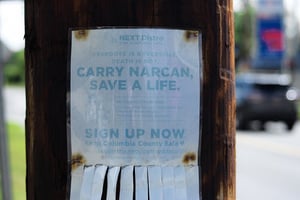Teen Prescription Abuse Prevention Lasts Into Adulthood
 |
The article presents the combined research results of three randomized, controlled trials of preventive interventions – termed “universal” because they target all youth regardless of risk for future substance abuse. All three studies involved rural or small-town students in grades six or seven, who were randomly assigned to a control condition (receiving no prevention intervention) or to a family-focused intervention alone or in combination with a school-based intervention.The researchers said t he intervention effects were comparable or even stronger for participants who had started misusing substances prior to the middle-school interventions, suggesting that these programs also can be successful in higher-risk groups.
Read more about the prescription drug abuse epidemic in Psychiatric News here.
(Image: Mehmet Dilsiz/Shutterstock.com)





